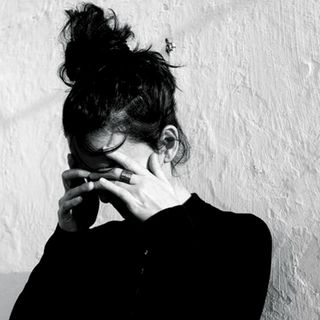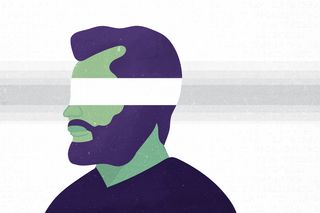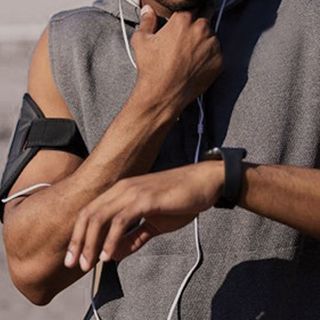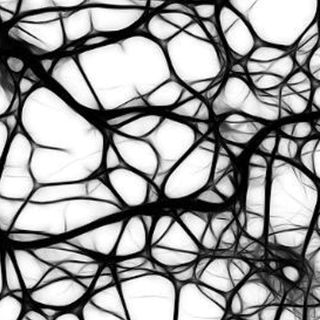
What’s It Like to Live With: Impaired Vision
“The only thing I hope for is for public places to become friendly for visually challenged people.”

What It’s Like to Live With explores the stories of people who see and experience every day a little differently.
I’ve been a diabetic for a decade. I was aware that it could cause reduced or complete loss of vision, and it did. Five years ago, on my way back home from work, I suddenly felt my vision changing. I thought I had blacked out or I was about to faint. I blinked a couple of times, sat down and shut my eyes, opened them again, repeated this at least a 100 times, splashed some water, but it had happened — I had got diabetic retinopathy (DR). It’s a condition in which the blood vessels of the retina get damaged. This can cause a person to have mild vision problems, sometimes also eventually leading to blindness.
Both my eyes have less than 1% vision. With DR, sometimes there are no symptoms, and at other times, there are only mild vision problems. In my case, neither were there symptoms nor mild vision problems. It was a sudden onset of blindness. The doctors said this sudden blindness was rare but not completely unheard of.
When it reached the point where I couldn’t see the world clearly, I quit my job as an accountant. I was worried because I was the only earning member of my family. I had rent and children’s school fees to pay andhad to fund other general expenses.
ButI couldn’t worry about anything else; I had to think about my everyday life. First, we removed clutter and moved things around to make it easier for me to navigate my way around the home. My children were told not to change things around without asking or informing me.
As a person who loved reading, I wasn’t sure how I could continue. Initially, my wife read out the morning news to me every day, and my children read books to me at night. But I knew it wasn’t right of me to depend on them. I found Braille classes and enrolled in one close by. That was the first step I took to be productive again.
Related on The Swaddle:
Communicating Better With People With Disabilities
After I had learned Braille, I read a lot more. Luckily, I had saved up to sustain us for a couple of months and sold a small property I owned in my village to get us going in case of any contingencies. But, sitting at home was making me restless and guilty.
The only other profession I thought I could manage was teaching, but I wasn’t sure if anyone would trust an almost-blind teacher. I gave a few demonstration classes; some schools really liked the way I spoke but they were unsure of how students would cope with me. But one school was very generous to make me an offer. They got the textbooks transformed into Braille, asked me to take a couple of dummy classes, and in a week, I was ready to meet my first batch.
I was now a secondary school Hindi teacher. I was excited, nervous and most importantly, worried about whether I would be able to manage the class. The children were told about my blindness and they were extremely understanding — they did not overdo their offer to help, but also did the needful. I would prepare my lessons a day in advance and if I needed something to be written on the board, I would ask a student to volunteer. Every now and then, I’d ask another faculty member to come and sit in class, just to see if things were on the right track. When it came to exam and homework corrections, I had an assistant read out answers to me and mark them right or wrong.
I once had a student come up to me and apologize for something she thought unforgivable. She said, “Sir, please give me the harshest punishment, because once when you took a surprise test, I opened my book to look for an answer because I thought you couldn’t see me anyway.” I did feel bad, but she was crying so profusely that it melted my heart. I told her that her apologies are enough. She then read me a letter she wrote about how she would never cheat again.
Related on The Swaddle:
Indian Women Are 35% More Likely to Go Blind of Cataracts
It’s been four years since I took up this profession and I haven’t felt likeI have lost out on anything. My family has been very supportive, so have my school staff and my students. The only thing I hope for is for public places to become friendly for visually-challenged people.Just as I make myself familiar with a road or a route, there will be a new pothole, a railing gone, or a manhole open. Shopkeepers on the route that I take are familiar with my timings, so they always keep me alerted for possible dangers. But I can only imagine how it must be for people who aren’t as lucky.
Although things are fine, I must mention that it gets particularly difficult in the rainy season with autos not ready to go where you want to go easily, and not being able to see when the next one is coming, or which one is empty. Stepping into puddles is the most irritating feeling in the world, and I can never anticipate it because I don’t use a cane. If the roads were fine, I would never have to worry.
Though diabetes took away the joy of eating sweets and then my vision, it also gave me blessings from so many students and parents. When my students pass with good grades, it’s the happiest feeling in the world. I do wish I could see the joy on their faces, but for now, I’ll make do with feeling it.
Anubhuti Matta is an associate editor with The Swaddle. When not at work, she's busy pursuing kathak, reading books on and by women in the Middle East or making dresses out of Indian prints.
Related


Heart Rate Fitness Trackers May Be Less Reliable for Darker Skin Tones
